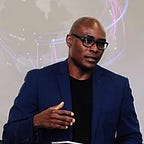Many college graduates are underemployed. But is that the college’s problem?
A recent report from the Strada Education Foundation showed that “only about half of bachelor’s degree graduates secure employment in a college-level job within a year of graduation.” People with college degrees get jobs, but those jobs are not, according to the report, college level.
“the report defines a ‘college-level job’ as employment in occupations that typically require a four-year college degree, and ‘underemployment’ refers to the experience of four-year college graduates who are employed in jobs that don’t typically require a bachelor’s degree.” — Strada
Most people attend college to get jobs that are for college graduates. There is also an underlying assumption that jobs for people with college degrees will be more meaningful and more economically rewarding. So, this report adds some empirical evidence to the trope of the person with a philosophy degree working as a barista at Starbucks.
This is a bad look for our higher education institutions. But it shouldn’t be. I think we have some problematic assumptions about what colleges and universities are for and what they should be doing. Here is, in my opinion, the three historical functions of higher education in a society:
- Produce elevated knowledge — Higher education institutions are spaces where academics and researchers generate new knowledge for society. Many of the new insights, theories, technologies, or solutions come from colleges. I…
